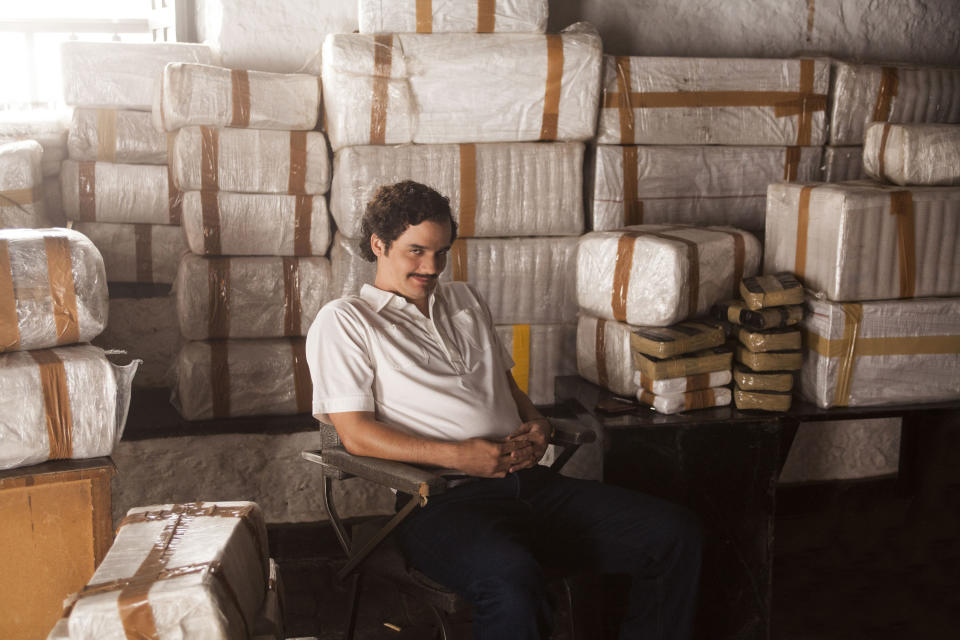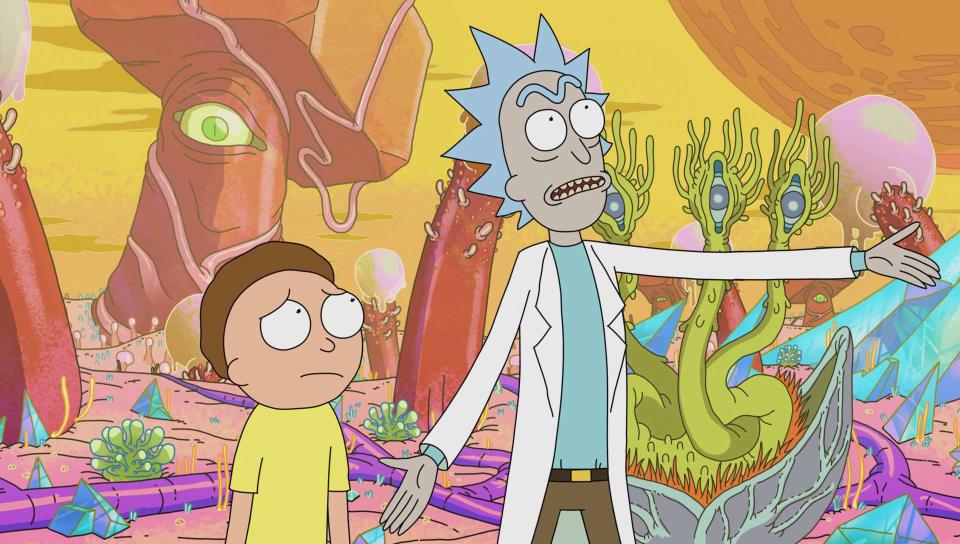Can event television survive in the binge-watch era?

With the continuing popularity of streaming services like Netflix and BBC iPlayer, the days of event television, where people across the nation gather in their living rooms to watch a show at the exact same time, seems to be increasingly becoming a thing of the past. The lure of binge-watching whole seasons of programmes, barely breaking for food or the toilet, has been too much of a temptation for some viewers who simply prefer to have their entertainment on demand. They want it at a time that is more convenient to them and – presumably – where they can enclose themselves in a fort made of Doritos.
But there seems to be a growing trend amongst the most popular shows on streaming services, indicating that event television won’t just survive the binge-watch era, but that it’s actually making a resurgence.
Shows like ‘Game of Thrones’, ‘Rick and Morty’, and ‘Star Trek: Discovery’, despite being available to watch on demand once they’ve been aired, release a new episode at the same time every week. In fear of missing out or potentially having the latest beheading spoiled for them on social media, audiences gather to watch these shows as if they were on terrestrial TV with allotted broadcast times.
And just like that, they become an event, like ‘The Great British Bake Off’ or football.
‘Game of Thrones’ is most likely responsible for setting this trend, with it clearly demonstrating the obvious benefit of staggering a series over the course of seven weeks or more: it lasts longer. For a show like this, it can, and usually does, take two years to make a new season, so the idea of waiting all that time for just one day of binge-watching seems like an incredibly morose thing to do.
In fact, a recent study by The University of Melbourne found that binge-watching a show actually makes it less enjoyable. They took a mixture of graduates and undergraduates, split them into three different groups – weekly viewers, daily viewers and binge-watchers – and then tested them on BBC America’s cold war drama ‘The Game’.
Not only could the binge-watchers barely remember the characters’ names 140 days later, they also claimed to enjoy the show far less than the weekly and daily viewers, who retained a lot more information like healthy human beings.
For someone to enjoy a show it seems entirely necessary that they should actually be excited about the next episode. That’s not really possible with, say, ‘House of Cards’ or ‘Narcos’, which you can watch in an uninterrupted strand, with each instalment melding together so you can barely tell them apart and end up wondering why Kevin Spacey suddenly looks like Pablo Escobar.

But that itself has become its own form of storytelling. Sitting down to watch an entire season in one or two days is now the preferred method of consumption (80 per cent like it that way, according The University of Melbourne). That makes the viewing experience more like watching a ten-hour film, where audiences can seemingly witness the birth and death of a character in real time.
Aside from apparently being less enjoyable, there’s another clear drawback of visually ingesting entertainment like that: people aren’t going to talk about it for very long. The entire world might be reeling with anticipation for the latest series of ‘Stranger Things’, but once everyone’s seen it on the first day and eventually stopped hyperventilating, the chat will quickly dissipate. That’s where a show like ‘Star Trek: Discovery’ can really thrive, generating discussion and speculation as it makes its fans wait an agonisingly long week for the next episode.
It’s clear to see from social media, particularly Twitter, how much of a difference having weekly instalments makes to the activity surrounding a show. Quite simply, if it’s on for thirteen weeks it’s going to trend for twelve days longer than something that can be binged in one day. And really, the subsequent onslaught of ‘Oh my god, I didn’t think she’d die!’ tweets are a virtual manifestation of this new wave of event television.

Of course, there’s a business reason why some shows release episodes on a weekly basis: they’re joint-produced by other networks. ‘Star Trek: Discovery’ airs on CBS in America, ‘Rick and Morty’ on Adult Swim and ‘Better Call Saul’ on AMC. All of these channels would be fairly miffed if Netflix uploaded every episode in one go, giving audiences no reason to tune in via satellite or cable. In terms of keeping event television alive, this kind of shared broadcasting can only be a positive.
Ironically, it was just last year that the chief content officer for Netflix, Ted Sarandos, explained why the company wouldn’t release episodes on a weekly schedule.
“There’s no reason to release it weekly,” he said. “The move away from appointment television is enormous. So why are you going to drag people back to something they’re abandoning in huge numbers?”
That’s undoubtedly still the Netflix philosophy, as the majority of their shows remain ‘bingeable’, but with more channels producing content to be shared between both platforms, it seems as though streaming services haven’t replaced event television, they’ve just given it another place to live.
Read more
The best Doctor Who episodes of the modern era
What place is there for Punisher in 2017?
Why Walking Dead S8 may be the best yet

 Yahoo Movies
Yahoo Movies 
